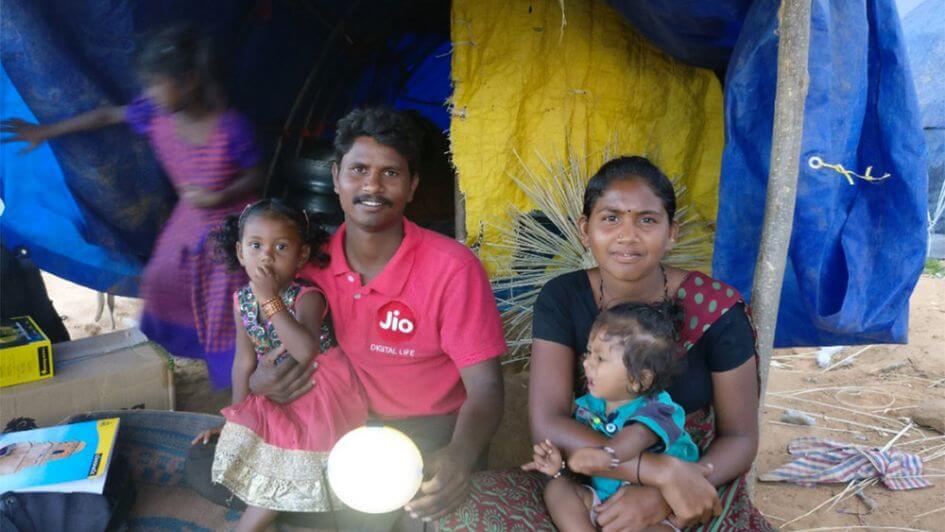Most international focus on electricity poverty is understandably on remote, rural communities, where 900 million people live without power. But as Pollinate Energy just proved in India, cities also face similar challenges. Pollinate, which distributes solar and other life-changing products to vulnerable urban migrants, just announced surpassing its 100,000 customer.
And the social enterprise, which was started four years ago to end the burning of toxic, dangerous and expensive kerosene by families living in tents, plans to be operating in 20 cities (it is currently in 4) by 2020, reaching 1 million customers, according to CEO Alexie Seller, who is based in Bangalore.
“We know our model works,” said Seller, adding that the enterprise, while still relying on tax deductible donations today, expects to be self-sustaining by 2020. “There is a lot of opportunity to scale. Going through metro cities has been our focus, but now we’re pushing out to tier 2 and 3 cities.” Currently, Pollinate is in Lucknow, Hyderabad, Kolkata and Kanpur.
Pollinate customers, Seller said, are “essentially still villagers” and her company is filling a gap in distribution to meet their needs. It started with solar lighting, but has evolved to include many other products that require electricity (fans, mobile chargers, blenders) as well as non-power related products such as mosquito nets and water filters.
Pollinate customers work on a cash payment plan, usually lasting 1 to 2 months.
Reinforcing the urban-rural connection when it comes to energy poverty, Pollinate is now seeing increased sales to urban migrants that are then sent back to their home villages. “They started doing it without our intervention, and we just figured out ways to leverage that,” said Seller.
